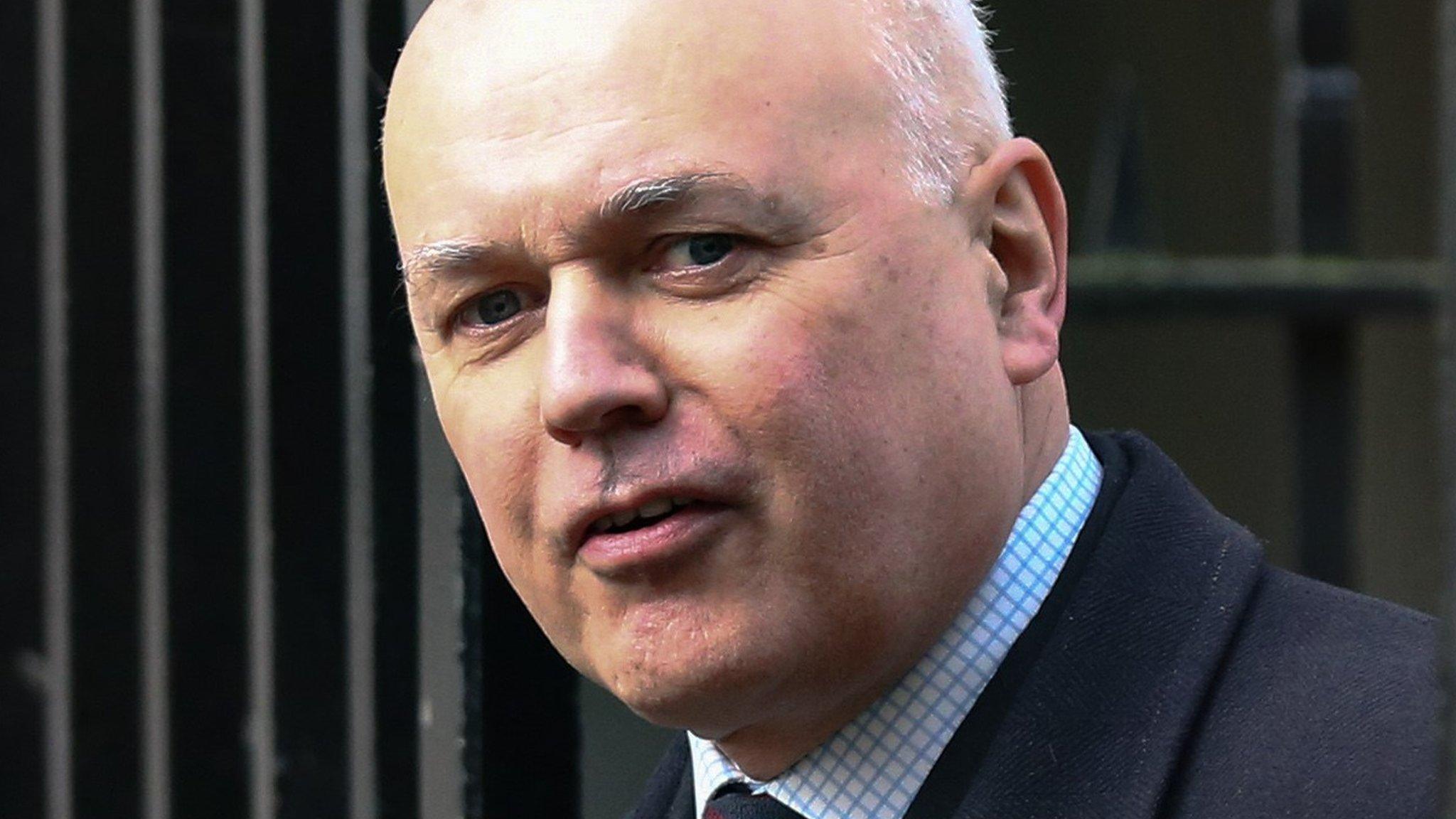Where does week of drama leave Cameron and Osborne?
- Published
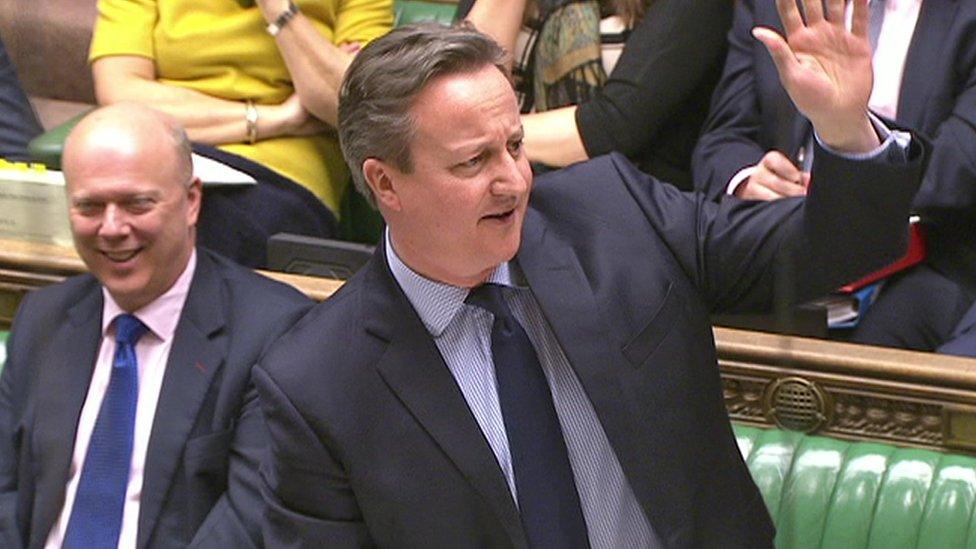
David Cameron enjoyed himself during Prime Minister's Questions at the end of a trying week
This week began with the government seeming to be in mortal danger. The prime minister and the chancellor's motivations had been called into question by one of their own side.
A big hole had been blown in the Budget, one of most fundamental parts of any government's credibility.
The anger that has been simmering under the surface in Tory ranks for months blasted into the open, with insults being traded publicly and privately, and 16 MPs, more than the government's majority, giving public sympathy to Iain Duncan Smith, considered by others a hypocrite.
The air was blue, mobiles were in meltdown with phone calls and furious texts. Ministers were talking of "kamikaze missions" , "uncharted territory", and "treachery".
But as MPs hurtle towards their Easter holidays, No 10 might be breathing a sigh of relief. With an open goal as wide as the Atlantic, even some of Jeremy Corbyn's biggest supporters might acknowledge privately that he couldn't best the PM today.
The session ended instead with David Cameron cracking gags at Labour's expense and laughter all around. Jeremy Corbyn did raise the issue that had infuriated MPs from all parties, and worried many members of the public - the shambles over changes to disability benefits.
And to start with, he appeared to be making some headway, but the leaking of a list of Labour MPs with their loyalty to the leadership embarrassingly rated gave Mr Cameron enough jokes to keep cracking them until Christmas.
One Labour MP said "if we can't win today, when can we win?". That's even before the headlines revealing one of Mr Corbyn's most vociferous critic John Woodcock's tweet was revealed.
The language in it is too indelicate to repeat here, but involved a lot of the letter F.
So are the prime minister and the chancellor off the hook? In short, no.
George Osborne's hopes of leading the Tory party have plunged. Ministers and MPs tell me he has just made too many enemies and messed up too many times. Mr Osborne has built a powerful system of patronage in the Commons, but in the words of one minister, even one who has great respect for him, "he's alienated too many people - if you've been the one who has all the power, and you don't share it, eventually power starts to seep away".
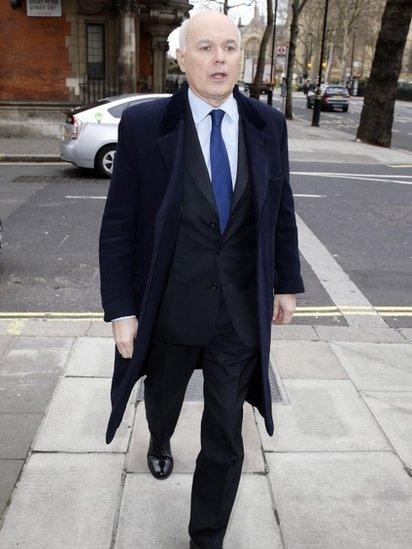
Mr Duncan Smith's departure lifted the lid on pent-up emotions
Of course he has supporters who are furious at Iain Duncan Smith and what they see as a deliberate attempt to kill off the chancellor's hopes of leading the party.
And just as this time last week, Iain Duncan Smith's explosive resignation seemed implausible (at least the timing of it), Mr Osborne could one day resurrect his chances even though it seems unlikely now.
But some ministers and MPs speak more freely now of a wider frustration about the way David Cameron and George Osborne run things - a focus on the next day's headlines, an obsession with setting short term political traps for Labour, what was described as "trying to win every week".
The question is asked, if the party is continually focused on what is around the next corner, how can they know what direction they are travelling in, let alone set the long term course?
With such a small majority it was probably inevitable that there would be a big bust-up during this government - all political parties are uneasy coalitions where counsel can be kept for so long.
The EU referendum campaign means those tensions are never far from the surface, and David Cameron's decision to allow ministers to express their clashing views on the EU means those differences of opinion are out, loud and proud.
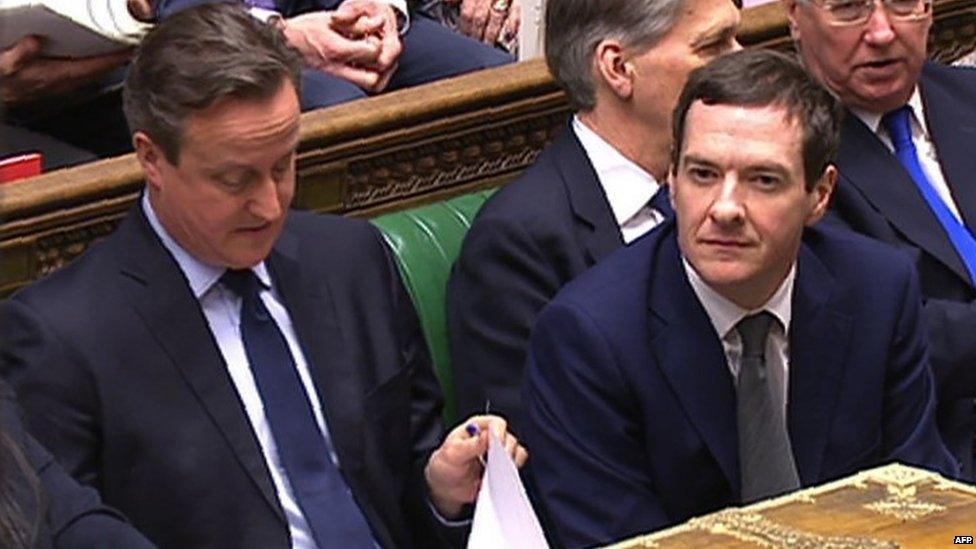
Restive MPs may reach the conclusion that the government is easier to push around
But the hostilities of the last week feel to some in the Conservative Party more like those of the last days of an administration, and many believe the prime minister's choice to say he would leave Downing Street before the next election only adds to that sense. In fact of course, this government is not even yet one year in.
Difficult decisions, such as the choice over Heathrow, or pensions reform, had already been put off until after the referendum. It hardly seems likely though that political climate will become easier after the campaign.
Several ministers have suggested to me in fact the environment will be even more challenging for the government - whatever the result of the referendum, half of the Conservative party will be disappointed.
And after defeats on Sunday trading, concessions on solar energy, the tampon tax, the U-turn on PIPs, backing down on short money, the flattering way of describing the government's strategy is that they have shown themselves to be malleable or to be "listening".
How their critics might describe it, or rebels delight in claiming, they've shown already they can be pushed around. So what are the real chances of the government being able to return to controversial issues after the vote in June?
The drama of this week has not undone the government. David Cameron showed his occasional mastery of the House of Commons today, and after a quieter period, Labour returned to some of its internal woes.
But recent days have shifted the balance of influence. Numbers 10 and 11 may not realise it yet, and of course their supporters would deny it. But some of their own ministers and MPs believe the power in both official residences in Downing Street is starting to ebb away.
- Published23 March 2016
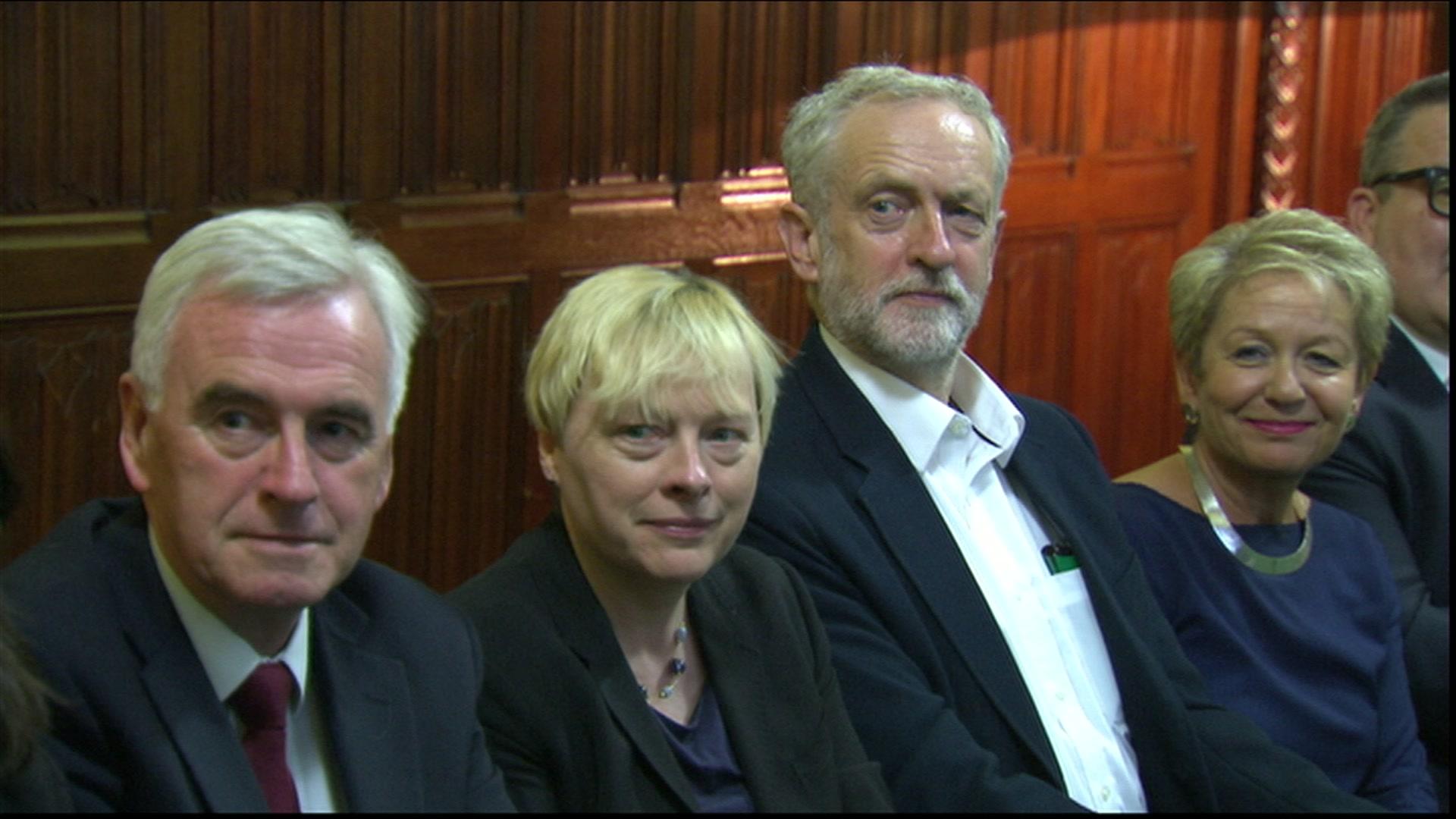
- Published21 March 2016
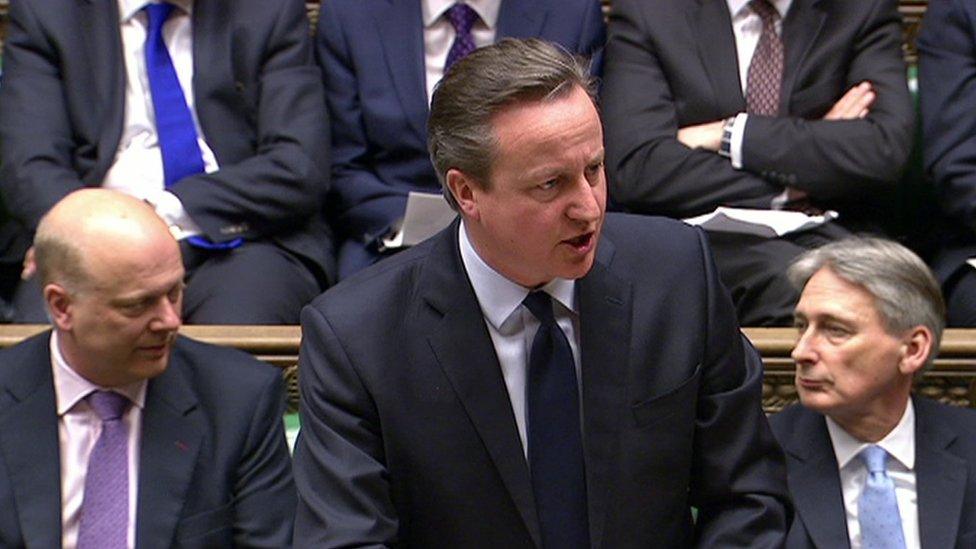
- Published18 March 2016
